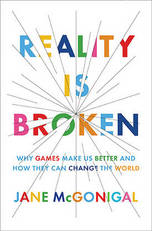I'm assuming that this would be a good thing, of course... Whaddya think?
1 Comment
 Last night no less than four - count them, four - utility (manhole) covers blew up on my new street in Crown Heights. It caused quite the stir. The entire neighborhood came out and wandered around, chatting and laughing, basking in the glow of our respective mobile devices. It turned into a big party. Alan and I finished off all the ice cream in the freezer, just in case. While Alan and I were hunkered down outside the park that divides our street, I was busily checking Twitter and came across this tweet: "For financial reasons." It was at least as big a shock as my street exploding. But then again, manhole covers blow up all the time. And Jewish organizations are prone to closing when there's no money anywhere in sight for creative, forward-thinking projects that don't have anything (directly) to do with advocating for Israel or ending the "plague" of intermarriage.
But manholes covers don't need to explode. It's a problem of maintenance. If we are more attentive to our streets and the magical grids below them that make our freezers keep ice cream cold and delicious, they won't cause the sparks that ignite the gases that make the manhole covers shoot into the sky. We need to invest in regular maintenance, not just emergency measures. The same is true of the Jewish world. JDub, and other innovative projects, needed maintenance (there's a great article on eJewish Philanthropy that illustrates this much better than I ever could - minus the flimsy manhole comparison). Jewish arts and culture are the magical wiring beneath the surface. They keep us whole, inspired. They simultaneously reflect and create our society, and they deserve our investment. I'm sure I will write on this again. In the wake of this boom, it will be interesting to see who from the neighborhood steps up, and how the landscape - the road - changes. It should be clear at this point that my husband Alan and I are big, big nerds. (If you needed more proof, he's reading the Myst books right now and I...well, read my other blog posts.) So in that vein, we're watching the entire Star Trek: The Next Generation series from the beginning. Here's a way cheesy promo spot to get you excited for the rest of this post. There have been all kinds of articles talking about Star Trek technology, comparing it to the types of nifty gadgets we actually have today. And a competition has even been launched to help expediate the creation of a real-life tri-corder to diagnose disease. Pretty cool stuff. Even if you're not a nerd (I think).
But there are some other interesting lessons we can learn from Star Trek, especially when it comes to social media. Here are a few:
Nonetheless, there are some interesting lessons to be gleaned that can help us make our own experiences in social media more meaningful and productive. Bottom line: Star Trek blends social technologies that best mimic true human interaction and learning into the work of the ship. Is there more to learn here? More to criticize? What would you add to this list? The Tower of Babel gets a bad rap. Here's an offensive-ish video illustrating just that fact... Humanity gangs up, decides to take over heaven, building this massive structure together, which is eventually thwarted by the divine beings who get freaked out about humanity's power.
Blecch. As Social Media Coalitions Manager at the Jewish Education Project (wow, segue), I've been thinking a lot about collaboration and what it means to build something together. Whereas a model like, say, building the mishkan is a pleasant reference, the Tower of Babel invokes a sense of caution, even dread. Don't dream too big! it warns. I believe, though, that there is another message we can glean from this text; one that doesn't stop you in your tracks and shout at you that you're not a god. Quite the contrary. In "Reality is Broken" (seriously, just read it), my new hero Jane McGonigal talks about the feeling we get when we're immersed in what she calls "epic environments." "An epic environment," she writes, "is a space that, by virtue of its extreme scale, provokes a profound sense of awe and wonder." Built epic environments, those we know have been crafted by human hands, inspire in us a particular sense of awe - "it makes us feel capable of much bigger things, together." The Grand Canyon is a good example of a natural epic environment, while the Great Wall of China is a built one. McGonigal talks about the first epic environments, places constructed thousands of years ago for, it seems, the express purpose of inspiring a sense of awe. The Gobekli Tepe, for instance, which predated Stonehenge by thousands of years, was among humanity's first 'cathedral' on a hill. One would think that these structures were the products of advanced societies, cultures that had learned to cooperate on a huge scales. Surprisingly, though, evidence suggests that the opposite may be true. "The stone cathedrals...actually inspired and enabled human society to become dramatically more cooperative, completely reinventing civilization as it once existed," McGonigal explains. Whoa. Some mind-flip, huh? Now let's return to the infamous Tower of Babel, viewing it with this new information in mind. No wait, let's back up a bit. Let's start with Noah and the Ark. Arguably the Ark was an epic environment, yeah? Massive in scale, housing two of every species on the entire planet, some kind of weird sewage system... It must have inspired the sense of awe we're talking about. But the Ark was a one-man kind of deal. The rabbis often fault Noah (who was "righteous in his time"... but probably wouldn't have cut it were he stacked up next to, say, Abraham) for not involving others. Unlike Abraham, who argued passionately on behalf of a couple of sinful cities, Noah got the marching orders and set to work. No questions asked. No one else involved. The Tower of Babel, on the other hand, was a grand-scale collaborative effort. All of humanty gathers to achieve one goal - to build an epic environment. So epic, in fact, that it would reach to the heavens. The divine beings are threatened by this move, and resolve to "confound their speech." Humanity is then spread over the entirety of the earth, effectively preventing a breech of the upper world. The text portrays this scene pretty negatively. Man's hubris, divine intervention, and a punishment that throws us all that much farther out of the Garden of Eden. But what if we read it another way? What if we looked at the positive results of this story? Building the Tower of Babel taught us to be cooperative. This project forced humanity to test the limits of its power. It certainly invoked a sense of awe in the builders and onlookers - the kind of awe McGonigal writes about. The kind that makes bigger things seem doable. And perhaps the divine punishment is not that at all. Being scattered, developing new languages... These are new adventures, wider horizons, opportunities to build complex societies in vastly different territories. And none of this would have been possible if we hadn't built the Tower in the first place. So maybe this biblical tale of the second built epic environment wasn't so bad as it seems. If you buy into my optimistic reading at all, then, dear readers, we have a new task at hand. The divine beings thought they were preventing further collaboration by spreading us out and tangling our tongues. How about we prove them wrong, eh? I've been running through a pretty significant library of extra-curricular reading lately (thank you, Kindle app). It's been awesome. I read "Here Comes Everybody," then "Groundswell," both of which were solid reading for any social media buff. Then I moved on to "The Networked Nonprofit," which I am declaring to be compulsory reading for anyone who does anything in the world and wants to do it smarter, simpler, and more effectively. I dug "The Starfish and the Spider" for the concept, not so much for the hands-on. (It's actually a good companion piece to "Networked Nonprofit.") And now I've caught the gaming bug - I'm just getting into "Reality is Broken." And it's awesome.  Jane McGonigal is quickly becoming a new hero of mine. She's smart, and talented, and often funny. She's simultaneously grounded and hopelessly optimistic. She uses the word "gamefulness." She's so cool! McGonigal is out there saying that there are things that are broken in the world, and maybe the lessons we learn from games can help us fix them. Maybe making our lives more game-like will add meaning to our lives. (Just read the book.) I don't care if she's "right." She makes me want to believe. Games and art make life worth living. Ok, I can buy that; game on.
 My band, Stereo Sinai, is dropping an album this summer, and it's gonna be amazing. Seriously, it's gonna rock your face off. But that aside, up until now Stereo Sinai has functioned as a downloads-only outfit. The only way we've sold our songs is through our website. When we first decided to go this route, I wrote a whole manifesto about it, but really all I needed to say was: It is better for the environment.
It's cheaper for us (Stereo Sinai). It's cheaper for you, when you're only buying the songs you want. It's consumer empowerment-y. The problem is, though, people kept asking us for CD's. And we want to do album art. And we need to have something to hand to people when they ask what cool band we're in. And, to be honest, hardly anybody goes to www.stereosinai.com to download music. D'oh. But then there are these goofballs, Pomplamoose, all single-handedly changing the music industry and whatnot. I encourage you to read the article, but basically these two are a self-made band that never tours and never sells CDs and bought their house from mp3 sales. Sheesh...these kids and their music. So what's a young indie band to do? To disc, and shell out the money and apologize to the planet and hand our beautifullyover to that slick promoter, or not to disc, and risk wallowing in anonymity or, apparently, becoming indie-rock heroes? Take a moment to watch the video below. Now consider this.
Think about the amount of technology that went into bringing this video to your screen. The sheer accumulation of human innovation is mind-boggling. Humans can shoot themselves into space in metal cans. Humans in other metal cans can watch the other, while sitting comfortably and being offered free drinks. They can take out a mobile device, which works half-way up into the stratosphere, and record through the window. They can take that video and upload it to a worldwide network. I can access that network, watch the video (along with almost two million others, as of this writing), grab a couple of letters and place the video into my own space on this worldwide network, and comment on it. Then you can comment on my comments, and so on. It's pretty freaking cool, I think. |
Photo used under Creative Commons from Davichi




 RSS Feed
RSS Feed